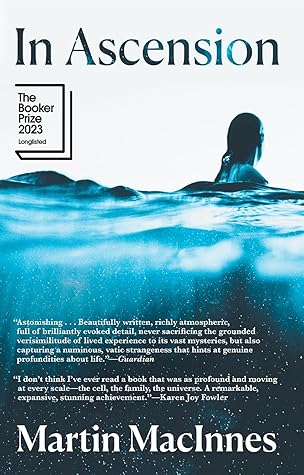More on this book
Community
Kindle Notes & Highlights
Mathematics wasn’t about communicating, passing something between people; it was purer, closer to music, an act of revelation.
If Fenna could speak the language that she thought in, the sound would be like nothing in the world.
Because we didn’t know him, we didn’t know what he might do. Anything we said or did, no matter how innocuous, might unleash this torrent inside him.
A spoonful of seawater or a pinch of soil between your fingers held billions of living things. We were blind to this out of necessity, because if we saw what was really there we would never move. It was around us, between us, on the edge of us and inside us.
Most people agreed that ocean vents were life’s beginning. At their base, archaea – the ancients – feasted on methane and sulphur, converting gases into sugars and founding the food chain. The archaea – small, structurally simple, distinct from bacteria – were some of the first living things, appearing 3 or 4 billion years ago in a chaotic era of mass volcanic eruptions. At some point long after this, something even more radical happened, and archaea grouped with bacteria to form a new kind of cell, containing a nucleus. All multicellular life – plants, fungi, animals – come from this. But
...more
‘The cell is basically an ocean capsule. A preserved primordial capsule, holding the original marine environment inside. This is . . . this is just beyond incredible, isn’t it? I mean, you could describe us as both people, and as mobile assemblages of ocean. I am not ready to get over this.’
As a general rule, you couldn’t learn anything radically new, rate of progress capped from the start by inertia, inability to recognise anything past the limits of present imagination. You could only see, essentially, the world as you already knew it.
The fact that this person could still be surprised by little things like this, someone considered to be old, seemed incongruous and unlikely, even absurd. She was still a child. We all were. This never changes, it never leaves us, this sense of beginning, of always beginning, of always being young.
It’s a miracle the weeds push up. Where is their sustenance, what are they feeding on? They see them only on the roads, by the mast towers, and on the airport runway where they landed. It is as if they thrive on provocation, rising up only when they have something to tear down. They are impish and morbid and embittered and they sort of love them. On the black rubble beaches, on the lower hillsides, they linger; they sit back, wait for the hubris of industry.


